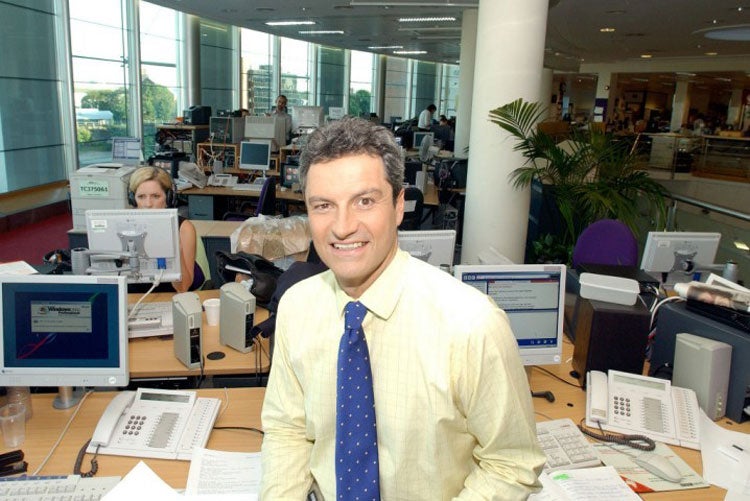An education in the life of Newsnight presenter and novelist Gavin Esler
'My BBC application was rejected'

Gavin Esler, 55, is a presenter on BBC2's Newsnight and also on BBC News24. His fourth novel, A Scandalous Man, is just out, and he is one of the BBC Radio 4 contributors to More From Our Own Correspondent, also out now
My alphabet book at Duddingston Primary, Edinburgh, began traditionally with "a is for apple", but when it came to "g", it was "g is for gas globe". This was in the late Fifties; there hadn't been gas globes for decades. The textbook must have been 30 or 40 years old! Whatever we say about the resources today, the good old days were bloody awful. Apart from that, it was a wonderful school. I loved both it and my first teacher, Miss Darling, an elderly lady in her last year of teaching.
At seven years old, I won a scholarship to George Heriot's School, an independent school in Edinburgh, and I was there until I was 17. It was built in 1628 by a man who backed a winner: he was a moneylender to James VI of Scotland, who became James I of England. "I Distribute Cheerfully" was the school motto.
It was incredibly old-fashioned, with strict discipline; just the sort of school for me. My memories are incredibly happy. It was very sporty and I did a lot of rugby and swimming. There were also a lot of theatre trips: we went to Waiting for Godot, and even Hair, which featured nudity and was on in Glasgow (you'd never be able to put it on in Edinburgh!).
The folk scene in Scotland was very political at the time, and they sang songs about overturning the government. I was more interested in writing than politics; it was only when I went to Northern Ireland, where people were being blown up and shooting each other, that I got really interested. In Scotland, we had O-grades and Highers. The system is better than in England – I'm absolutely biased! – because if you're going to sit the Highers, you don't have to waste two years on the lower grades, and you sit more subjects at the Higher level, which are, I'd say, at the standard of AS-level. After that, at 17, you do a Certificate of Sixth Year Studies, a pre-university year.
From about 14 or 15, I worked and enjoyed it. At 16, I did only O-grade arithmetic and physics. The following year I took seven Highers: maths, English, history, biology, chemistry, physics and Latin. I loved it. It was a tough year, tougher than doing a degree.
My parents moved to Northern Ireland and I stayed with a family in Edinburgh. I was going to do medicine at Edinburgh University – when I was three weeks old I nearly died, but they did an operation and I survived. It was a huge thing for my family – I was the first-born – and doctors were heroes, so I wanted to join them. However, at 17 I changed my mind because, from my teenage years on, I had been writing – I've still got lots of it, though I don't look at it – and I wanted to write fiction and also be a newspaper journalist. So I had a huge wobble, but I think that I took the right decision. I was the first member of the family to go to university and they were all incredibly supportive.
I did modern English and American literature at Kent University, with no Chaucer and no Middle English: a perfect course. The writers I adored were Beckett, Wilde and Joyce, and I also loved Yeats' poetry. While I was there I wrote for Incant, the university newspaper. I got a 2:1, and then did a one-year MA at Leeds University in Irish literature, with a thesis on Irish short stories. I got a distinction.
I applied to the BBC when I was at Kent and got a rejection. I applied when I was at Leeds and didn't even get a reply. I've been getting my revenge on the BBC executives responsible ever since.
Join our commenting forum
Join thought-provoking conversations, follow other Independent readers and see their replies
Comments